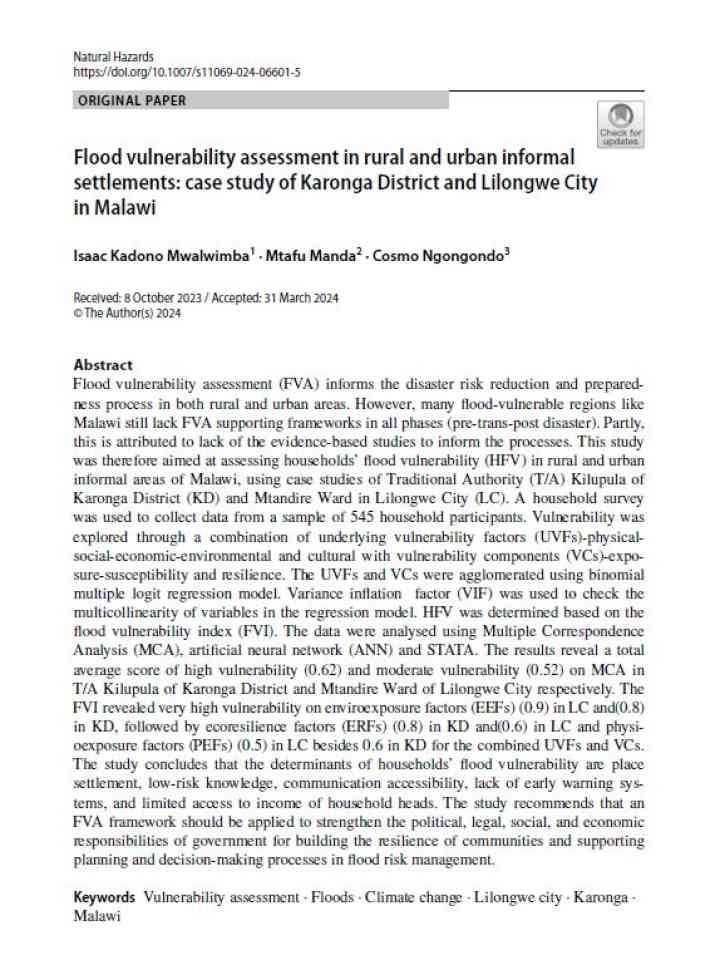Flood vulnerability assessment in rural and urban informal settlements: case study of Karonga District and Lilongwe City in Malawi
This study was aimed at assessing households’ flood vulnerability (HFV) in rural and urban informal areas of Malawi, using case studies of Traditional Authority (T/A) Kilupula of Karonga District (KD) and Mtandire Ward in Lilongwe City (LC). Flood vulnerability assessment (FVA) informs the disaster risk reduction and preparedness process in both rural and urban areas. However, many flood-vulnerable regions like Malawi still lack FVA supporting frameworks in all phases (pre-trans-post disaster). Partly, this is attributed to lack of the evidence-based studies to inform the processes. A household survey was used to collect data from a sample of 545 household participants. Vulnerability was explored through a combination of underlying vulnerability factors (UVFs)-physical-social-economic-environmental and cultural with vulnerability components (VCs)-exposure-susceptibility and resilience. The UVFs and VCs were agglomerated using binomial multiple logit regression model. Variance inflation factor (VIF) was used to check the multicollinearity of variables in the regression model. HFV was determined based on the flood vulnerability index (FVI).
The data were analysed using Multiple Correspondence Analysis (MCA), artificial neural network (ANN) and STATA. The results reveal a total average score of high vulnerability (0.62) and moderate vulnerability (0.52) on MCA in T/A Kilupula of Karonga District and Mtandire Ward of Lilongwe City respectively. The FVI revealed very high vulnerability on enviroexposure factors (EEFs) () in LC and) in KD, followed by ecoresilience factors (ERFs) (0.8) in KD and) in LC and physioexposure factors (PEFs) ( in LC besides 0.6 in KD for the combined UVFs and VCs. The study concludes that the determinants of households’ flood vulnerability are place settlement, low-risk knowledge, communication accessibility, lack of early warning systems, and limited access to income of household heads. The study recommends that an FVA framework should be applied to strengthen the political, legal, social, and economic responsibilities of government for building the resilience of communities and supporting planning and decision-making processes in flood risk management.
Explore further
